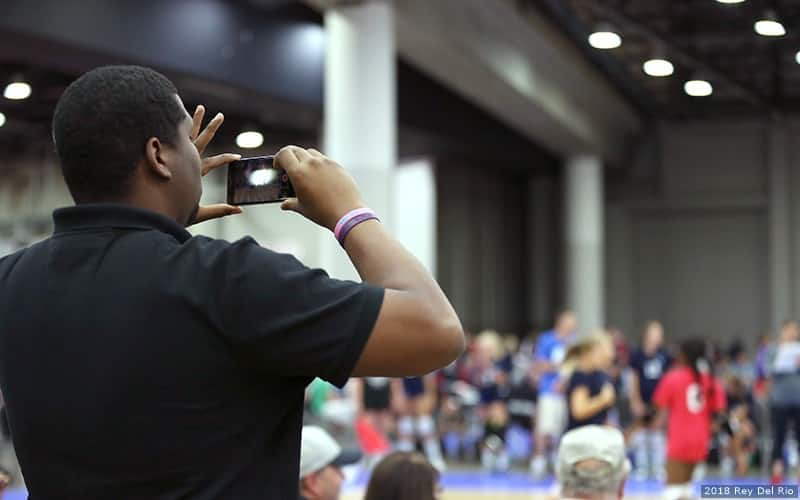
Signing up your young athlete for a volleyball team means they will soon become a teammate to others.
As a parent, you will likely have many conversations with your child about cooperation, commitment, reliability, and the many other characteristics of a good teammate.
But have you thought about the new role that you’ll take on as a teammate to your own child?
Characteristics of A Good Parent-Teammate
The athlete’s job is clear. They are there to work hard, have fun, learn and grow. The coach’s job is also straightforward. He or she is the leader, organizer and teacher. It’s their role to develop the athletes and design a safe and effective plan for the season.So where exactly does that leave you, the parent?
Chauffeur? Fan? Financier? Support network? What is the very best way for you to support the coach, your athlete, and their teammates?
A good parent-teammate...
- Supports their athlete unconditionally
- Helps the coach or officials when asked
- Leaves the coaching to the coach
- Focuses on cheering for the things players do well
- Lets the experience be the athlete’s
- Keeps their emotions under control
Good parent-teammates do not...
- Overemphasize winning, championships, or a career in sports
- Rush their athlete through into more serious training before they are ready
- Use the car ride home to do an in-depth game analysis
- Undermine or override the coach’s decisions
- Look for things to criticize
- Get involved in practice without being asked
- Drink alcohol before or during their child’s athletic events
Being a good teammate to your child requires patience, self-control, and a clear focus on your athlete’s best interest. Before enrolling your child in a sport program, ask yourself if you are ready to take a step back and embrace a more hands-off role as a “sideline teammate” to your child.
Questions to Ask Yourself
But before you take on this role, author Al Rosen suggests you ask yourself the following questions as honestly as you can:
- Do my family and I have the time necessary to support the commitment my child is making to the team?
- Am I ready to share my child’s sport experience with others?
- Am I willing to accept the coach’s authority as team leader?
- Can I appropriately handle the frustration and disappointment my child may experience?
- Is my child playing for a supportive, team-minded coach?
Answering yes to these means not only will you be there for them, you’ll be setting an example on how they can be a good teammate to the other kids, too.
About TrueSport
TrueSport® is a grassroots movement born and powered by the experience and values of USADA–the U.S. Anti-Doping Agency. The TrueSport® mission is simple and bold: to change the culture of youth sport by providing powerful educational tools to equip young athletes with the resources to build the life skills and core values for lasting success on and off the field.

